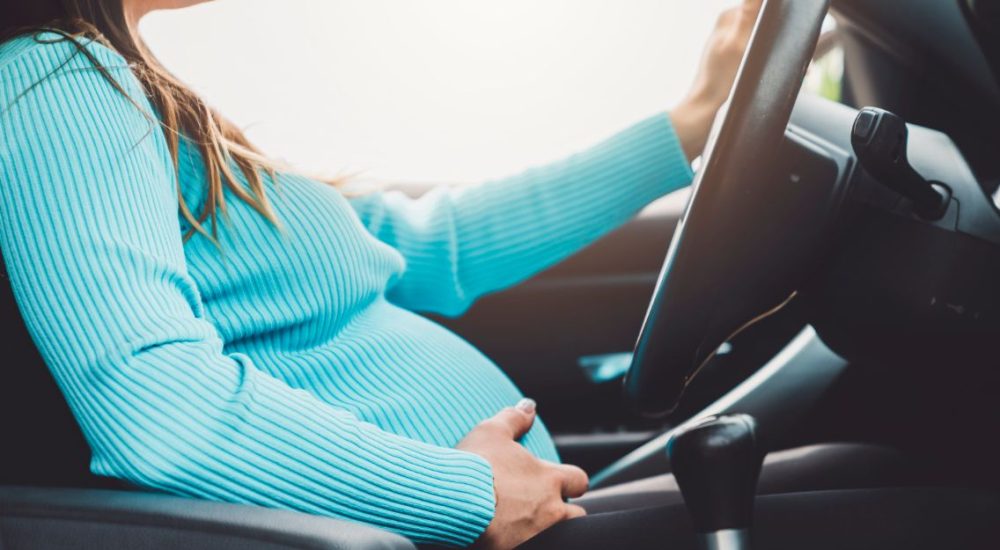Car Accident While Pregnant in Texas: What to Do? 2024
Car accidents happen in many ways every day, sometimes resulting in catastrophic or even fatal injuries. While anyone can suffer extreme harm in an accident, pregnant women and their unborn children are especially vulnerable in these incidents. If you or a loved one recently experienced a car accident while pregnant, it is vital to know what you can do to recover and the value of having legal counsel you can trust on your side.
Potential Injuries to Pregnant Mothers in Car Accidents
Any vehicle accident has the potential to inflict severe traumatic injuries on those involved. Brain injuries, spinal cord injuries, damage to internal organs, and broken bones are just a few possibilities. However, pregnant women and their unborn children are also highly vulnerable in these situations. For example, the crash impact can cause traumatic injury to the mother and child. It is also possible for the stress of the situation to prematurely induce labor or other pregnancy complications.
It is vital to seek medical attention immediately after any accident. This is especially true for pregnant mothers. Even if the victim seems to be unharmed, experiencing a traumatic event like a car accident can cause an adrenaline rush that dulls pain sensations, and it is possible for an unnoticed injury to the mother or her child to go unaddressed for too long, escalating to dangerous territory.
Recovering From a Car Accident
State law enforces the fault rule for car accidents, meaning whoever is at fault for causing a car crash is liable for all associated damages. Once you have proven fault for your accident and received medical attention for your injuries, you can proceed with claiming compensation for your damages from the at-fault driver. This process typically begins with an auto insurance claim, and if their insurance can’t fully compensate you for your damages, you can proceed with a personal injury suit.
When it comes to cases involving injuries to pregnant mothers and/or their unborn children, an at-fault driver can face liability for substantial damages. They may need to compensate the mother for unexpected medical expenses related to early labor and unexpected delivery. If there is any question as to whether specific medical expenses are the result of the accident, the victim will need to consult an experienced attorney as soon as possible.
Unfortunately, it is possible for an accident involving a pregnant woman to result in severe or fatal injury to her child, along with the injuries she sustains herself. This means the total damages owed by the at-fault driver can easily exceed the extent of their auto insurance coverage, and they will be liable for all economic and non-economic losses they inflicted. It is imperative to find legal counsel you can trust after experiencing an accident while pregnant.
FAQs
Q: What Happens When a Pregnant Woman Gets in a Car Accident?
A: A car accident can easily result in devastating injuries to anyone, but when a pregnant woman is involved in an accident, her unborn child can suffer life-threatening injuries as well. Immediate medical intervention is crucial in the aftermath of this type of accident. The at-fault driver would be liable for all damages suffered by the occupants of the other vehicle, and this could apply to the injured mother as well as her child.
Q: How Much Compensation Can I Claim for a Car Accident While Pregnant?
A: Under state law, the driver at fault for your car accident is liable for all resulting damages. When a pregnant woman is involved in an accident, damages may not only include injuries to her and associated medical treatment costs but also injuries to her child. It’s vital to speak with an experienced Texas car accident attorney as soon as possible to ensure all of the damages suffered in your recent accident are appropriately addressed.
Q: What Happens if a Car Accident Is Fatal?
A: If a driver causes fatal injury to another person in an accident, they are liable for wrongful death. The victim’s family could file a wrongful death claim against the at-fault driver after recovering as much compensation as possible through an auto insurance claim. State law allows the wrongful death statute to apply to an unborn child killed in an auto accident. If you believe you have grounds for this type of civil suit, it is imperative to consult a seasoned attorney as soon as possible.
Q: After a Car Accident While Pregnant, Can I Claim Pain and Suffering?
A: Yes, you have the right to seek compensation for any pain and suffering inflicted by another party’s negligence or intentional misconduct under state law. There is no limit to the amount you can claim as long as it is reasonable in light of the severity of your damages. Your attorney can help calculate an appropriate amount, and if an unborn child was seriously injured or killed in the incident, it could justify claiming a sizeable amount of pain and suffering compensation from the at-fault driver.
Q: Do I Need to Hire a Lawyer After a Car Accident While Pregnant?
A: Hiring legal counsel may not be strictly required, but doing so can dramatically improve your chances of maximizing your compensation obtained from the at-fault driver. This is especially true for a pregnant woman injured in an accident. Your attorney can help you recover compensation for the full extent of damages suffered in the accident, including any harm to the unborn child.
Stevenson & Murray can provide compassionate legal counsel in the aftermath of any car accident. Our team has successfully helped many accident victims recover, and we know how devastating these incidents can be, especially when a child is injured or killed. If you have legal questions following an accident someone else caused, we can provide the answers you need in this difficult time. Contact us right away to schedule your case review with our firm and learn how we can help with your recovery efforts.

Get Help Today
Request a Free Consultation
"*" indicates required fields


